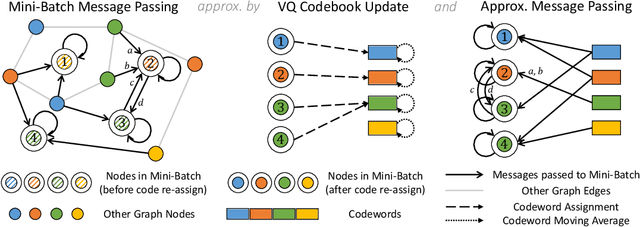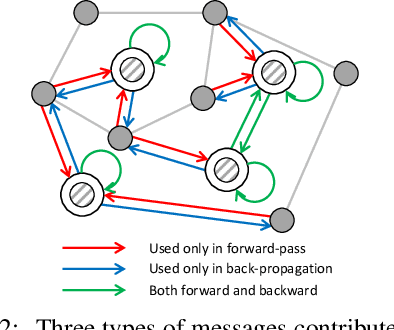VQ-GNN: A Universal Framework to Scale up Graph Neural Networks using Vector Quantization
Paper and Code
Oct 27, 2021



Most state-of-the-art Graph Neural Networks (GNNs) can be defined as a form of graph convolution which can be realized by message passing between direct neighbors or beyond. To scale such GNNs to large graphs, various neighbor-, layer-, or subgraph-sampling techniques are proposed to alleviate the "neighbor explosion" problem by considering only a small subset of messages passed to the nodes in a mini-batch. However, sampling-based methods are difficult to apply to GNNs that utilize many-hops-away or global context each layer, show unstable performance for different tasks and datasets, and do not speed up model inference. We propose a principled and fundamentally different approach, VQ-GNN, a universal framework to scale up any convolution-based GNNs using Vector Quantization (VQ) without compromising the performance. In contrast to sampling-based techniques, our approach can effectively preserve all the messages passed to a mini-batch of nodes by learning and updating a small number of quantized reference vectors of global node representations, using VQ within each GNN layer. Our framework avoids the "neighbor explosion" problem of GNNs using quantized representations combined with a low-rank version of the graph convolution matrix. We show that such a compact low-rank version of the gigantic convolution matrix is sufficient both theoretically and experimentally. In company with VQ, we design a novel approximated message passing algorithm and a nontrivial back-propagation rule for our framework. Experiments on various types of GNN backbones demonstrate the scalability and competitive performance of our framework on large-graph node classification and link prediction benchmarks.
 Add to Chrome
Add to Chrome Add to Firefox
Add to Firefox Add to Edge
Add to Edge